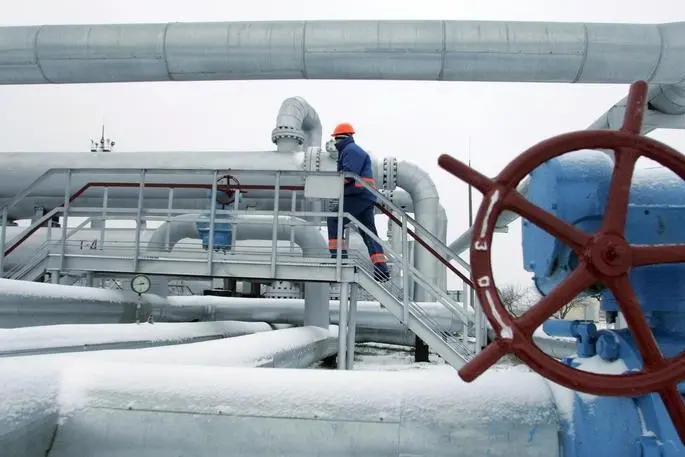PHOTO
Algeria has stepped up investment in its oil and gas industry, with the launch of new projects supporting plans to boost production and expand into value-added downstream processing.
In late March state-owned energy firm Sonatrach announced that production had begun at the Timimoun gas field in the country’s south-west. The project, which is expected to produce an estimated 1.8bn cu metres of gas per year from 37 wells, is 51% owned by Sonatrach, and will be jointly operated by French energy firm Total (37.75%) and Spain’s Cepsa (11.25%).
The launch of operations at Timimoun, which came after a series of delays, follows the establishment of the Reggane Nord gas field late last year. The Reggane Nord project, developed by Sonatrach and European partners Repsol, DEA Deutsche Erdoel and Edison, will have an estimated annual output of 4.5bn cu metres once fully operational.
A third project, the Touat development, a partnership between Sonatrach and Neptune Energy, which acquired Engie E&P International in February 2018, is expected to launch in the second half of 2018.
The three developments are expected to boost overall gas production by around 9bn cu metres per year and will be connected to the newly constructed, 765-km GR5 pipeline, which will transport gas to processing facilities at Hassi R’mel in the country’s central north.
The increased upstream activity comes as Sonatrach announced in February that it would invest $56bn in the company to 2022.
Some $250m of this will go towards upgrading and expanding the Tinrhert gas field in the south-east, which officials hope will see production increase from 5m cu metres per day to 20m cu metres per day by 2020.
Downstream processing and renewables to strengthen energy sector
In addition to increasing gas output, officials are seeking to increase downstream processing and the role of renewables to boost energy sector efficiency and profitability.
The country produced around 95bn cu metres of gas in 2017, of which approximately 55% was exported, mainly to Europe. The energy sector accounts for more than half of government revenues and around 95% of national exports; however, the industry, and in turn the state budget, has suffered following the drop in global energy prices that started in 2014.
As part of a blueprint for future sustainability, Sonatrach released its SH2030 Leading the Change development plan in late May, outlining an increased focus on petrochemicals and domestic processing.
“Downstream has always been neglected in Algeria and is becoming an important strategic issue,” Abdelmoumen Ould Kaddour, CEO of Sonatrach, told OBG. “We import more than $1bn per year of fuel, and that doesn’t make sense. We want to have an added value to our gas, and petrochemical processing is going to be the most important development for Sonatrach in the next century.”
To help improve the situation, the firm is upgrading its Sidi R'cine oil refinery, located near the capital Algiers. The expansion should be complete in the fourth quarter of this year. The works will see annual processing capacity increase from 2.8m tonnes to 3.7m tonnes and expand existing fuel storage capacity by 73%.
In addition, Sonatrach signed a $1.5bn deal with Total in May to construct a petrochemicals plant in Algeria’s west. It is expected to produce 550,000 tonnes of polypropylene annually, with excess production to be exported to Europe, Turkey and neighbouring countries in North Africa.
The announcement was preceded by the purchase of ExxonMobil’s oil refinery in Augusta, Italy, which has a treatment capacity of 10m tonnes a year. The deal is the company’s first overseas acquisition, and includes the purchase of three fuel storage terminals in Augusta, Palermo and Naples.
Moreover, Sonatrach is increasingly looking at renewable energy options, particularly as a means of reducing costs associated with energy production.
“We are looking at using solar energy in every oil or gas field. Because every installation consumes up to 20% of production costs, using solar energy to power operations is absolutely necessary,” Ould Kaddour added. “By 2030, all fields will be using solar energy to run the installations.”
Changes to hydrocarbons law to attract foreign investment
While increased state investment and diversification plans are set to support growth in the energy sector, officials have also outlined changes to existing legislation as part of a plan to attract greater participation from international players.
Mustapha Guitouni, the minister of energy, told the North Africa Petroleum Exhibition and Conference, held in Oran, that the government would table proposed changes to the hydrocarbons law in July.
Industry players have long criticised the existing legislation, cited as a deterrent for international players entering the country, arguing that certain measures no longer reflect the reality of operating during times of lower energy prices.
Of particular concern is the windfall tax, which applies additional charges on profits made by foreign companies when oil prices exceed $30 a barrel.
Beyond fiscal amendments, proposed reforms of the hydrocarbons code include the reduction of bureaucratic and administrative processes for investment. These should further incentivise activity in the oil and gas industry.
© Oxford Business Group 2018




















